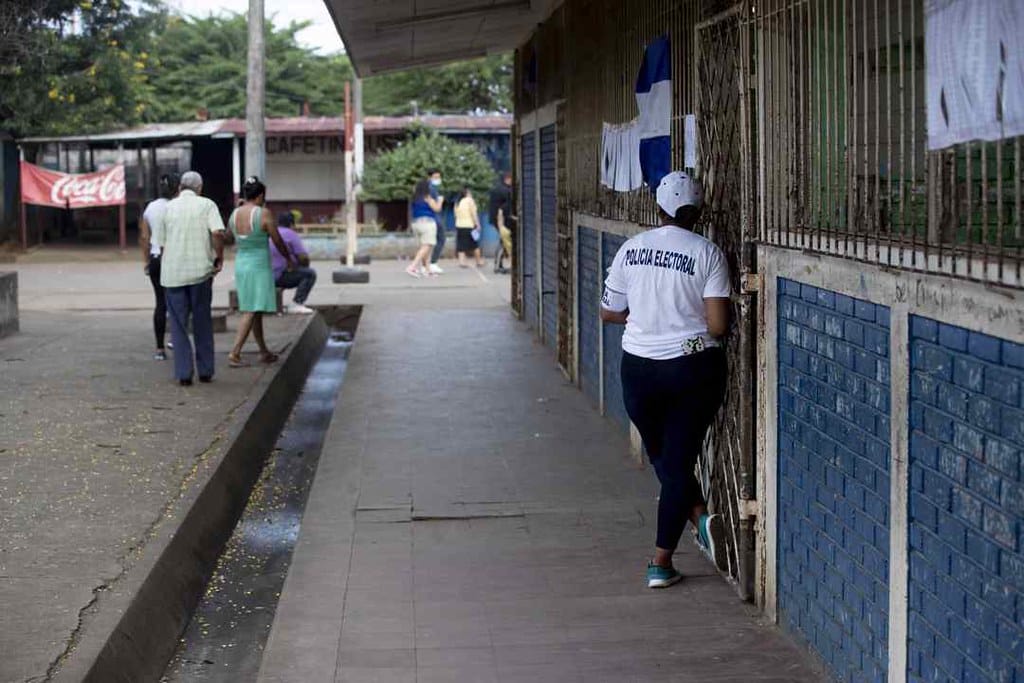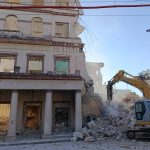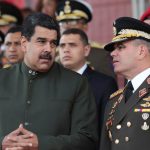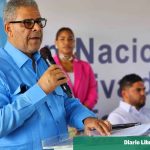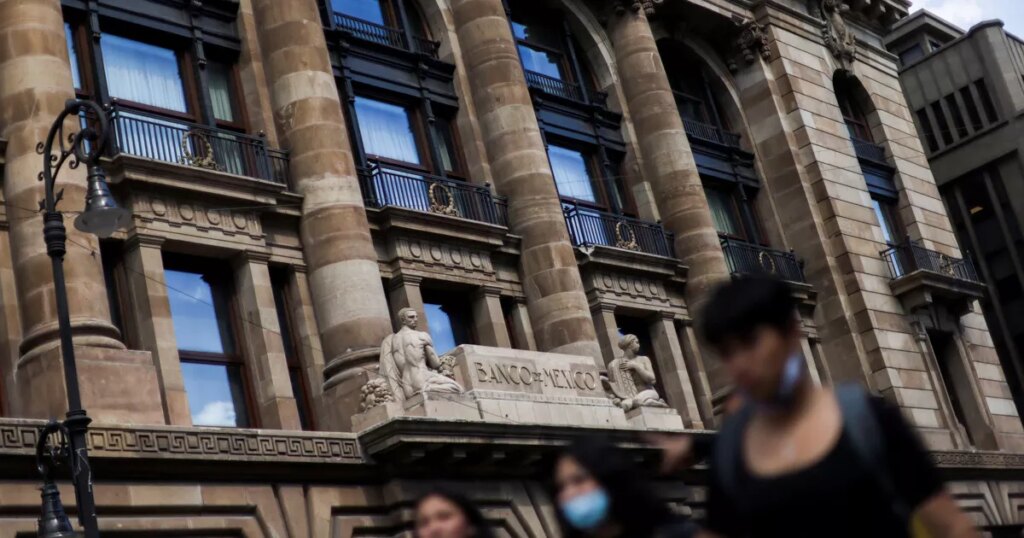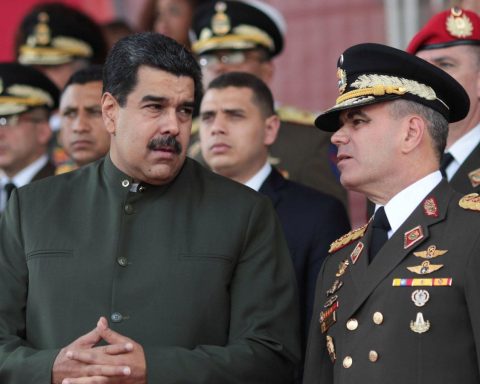The citizen observatory Urnas Abiertas indicated that, during the #Municipales2022 voting on November 6, it was recorded an abstention rate of 82.7%. This level of abstention exceeds that observed in the “electoral farce” of 2021, which was 81.5%.
Ligia Gómez, spokeswoman for the electoral observatory, explained that the information was calculated based on data received from 366 Voting Centers (CV) throughout Nicaragua, where citizen participation reached a meager 17.3%.
The percentages have a margin of error of 5% and a confidence level of 95%, according to Urnas Abiertas, made up of a group of multidisciplinary experts and volunteers.
The majority decision of Nicaraguan citizens to refuse to legitimize the electoral farce staged by Daniel Ortega and Rosario Murillo through their presence at the polls, represents a new defeat for a regime that used the full force of the State in pursuit of that objective, and failed, according to experts on electoral issues and political leaders, interviewed by the program This week.
The dictatorship tried to legitimize the extension of its domain over most of the country’s municipal administrations, using various acts of coercion, abuse of state assets, the kidnapping of 19 citizens, etc., and although those governments will continue in their can, the high abstention observedis evidence of the majority rejection of his proposal.
“Citizens refused to legitimize this process, which is what urged the dictatorship so much,” said Juan Diego Barberena, a member of the Political Council of the Blue and White National Unity (UNAB), when making his own analysis of the result of this new”mass abstention dayin which the great loser is Ortega”.
His conclusion is that “they cannot be said to be winners”, pointing to the loneliness, international isolationand the absolute illegitimacy with which the regime emerged, both after last year’s presidentiallike these municipal ones, which endorsed that they “lack popular legitimacy”, particularly after they took away the people’s right to decide and choose.
In Barberena’s opinion, on November 6 the inability of the regime to mobilize was again demonstrated, not the large number of citizens who needed to be photographed at the polling stations, but even its supporters, both this year and last, and as has been seen even in the ephemeris that were once celebrated in the squares in a massive way.
Héctor Mairena, also a member of the Political Council of the UNAB, highlighted that “Orteguism comes out without any legitimacy” from this vote, and that the citizen rejection verified in 2021, that “prompted the international community to quickly repudiate and disqualify this process”, this time will also serve to verify that the local governments that emerge from this electoral farce, “lack any legitimacy”.
Not even with threats could they achieve ‘the photo’
This time, once again, having abused state resources—which includes the monopoly of force—was insufficient to mobilize the citizenry, despite the multiple threats made against each target group.
Olga Valle, director of Urnas Abiertas, said that their presence in at least 148 of the 153 municipalities in the country, allowed them to verify that the constant was “absolute pressure” from all State institutions, against public employees, which included their relatives of voting age.
It was a system of “absolute surveillance”, in which there were checkpoints outside the voting centers or in neighboring houses. Sometimes, carried out from an awning with chairs to monitor who came to vote, as a continuation of the threat scheme that was implemented in the days prior to November 6.
Valle said that included small and medium businesses who were told they could lose their operating permit if they didn’t show they had voted; to students who were threatened with losing their right to an identity card, to citizens who were told that they would not be able to obtain a passport, etc.
Barberena expanded the list, reporting that some of the threats included the future refusal to receive a police record, a health certificate, a police permit for the sale of liquor, and even the impossibility of being suppliers of the State, which he considered “a act of desperation that sought to achieve greater electoral participation.
Ivania Álvarez, a researcher at Urnas Abiertas, expanded the list to include threats against medical students; relatives of war victims who were told that their pension would be withdrawn; ensuring that they would not renew transport permits or health permits, as well as those required by ranchers to carry out their activity.
The campaign of coercion included retirees and merchants, explained Ana Quirós, a member of the UNAB Political Council.
And now, what’s next?
The consequences of this electoral act in which no one was being elected They are generally predictable. What is not known is how quickly—and with how much virulence or intensity—they will occur.
Beyond the foreseeable ignorance of the process by the international community, to which Mairena alludes, there is Barberena’s remark, who indicates that “the dictatorship knows that it has defeated once again, but its reaction will be to repress and oppress Nicaraguan citizens. . We will continue to advocate internationally for the release of political prisoners, and for the rights of Nicaraguans to be restored,” he promised.
Quirós thinks that “probably, we will see a increase in migration, which will be caused by disenchantment, by the recognition that in Nicaragua there is no legitimacyas well as by the deepening of the social, political and economic crisis that exists in the country, with the risk that Some markets to which we export are closed to us”.
“Ignorance of the regime will have a negative impact on this economic situation, and that will produce more migration”, consolidating the Government of Nicaragua as “the largest exporter of cheap labor to other countries”, he sentenced.
In a previous interview, Haydée Castillo, a human rights defender and electoral observer, recalled that local governments are designed to be the closest to the needs of the population, on issues such as the environment, water, sports, development, taxation, etc. .
The local governments that emerged from fraudulent processes like this one cannot fulfill their function of satisfying these needs, not only for a matter of legitimacybut also for its absolute subordination to the interests of the Executive Power, over those of local communities, including using the mayor’s offices “as petty cash of the dictatorship”, and as a base for repression against citizens.
And so, as long as the foreign debt continues to grow, and food as basic as beans, cheese and oil are so expensiveand wages so low, to the point that 2.5 minimum wages are needed to buy the basic food basket, Castillo can only conclude that there will be more exodus, migration and forced exile, because “Nicaraguans can no longer build a life project in these circumstances ”.
